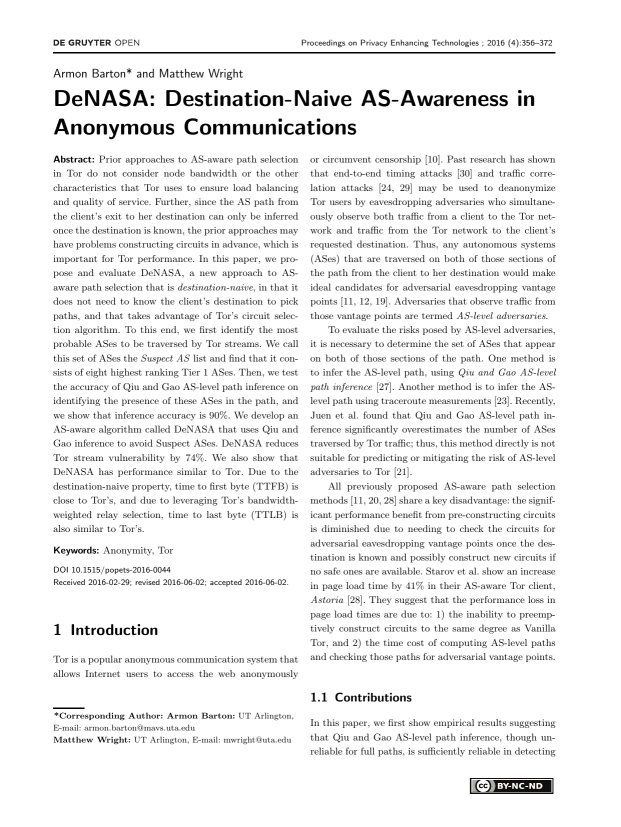DeNASA: Destination-Naive AS-Awareness in Anonymous Communications
Authors: Armon Barton (UT Arlington), Matthew Wright (UT Arlington)
Volume: 2016
Issue: 4
Pages: 356–372
DOI: https://doi.org/10.1515/popets-2016-0044
Abstract: Prior approaches to AS-aware path selection in Tor do not consider node bandwidth or the other characteristics that Tor uses to ensure load balancing and quality of service. Further, since the AS path from the client’s exit to her destination can only be inferred once the destination is known, the prior approaches may have problems constructing circuits in advance, which is important for Tor performance. In this paper, we propose and evaluate DeNASA, a new approach to ASaware path selection that is destination-naive, in that it does not need to know the client’s destination to pick paths, and that takes advantage of Tor’s circuit selection algorithm. To this end, we first identify the most probable ASes to be traversed by Tor streams. We call this set of ASes the Suspect AS list and find that it consists of eight highest ranking Tier 1 ASes. Then, we test the accuracy of Qiu and Gao AS-level path inference on identifying the presence of these ASes in the path, and we show that inference accuracy is 90%. We develop an AS-aware algorithm called DeNASA that uses Qiu and Gao inference to avoid Suspect ASes. DeNASA reduces Tor stream vulnerability by 74%. We also show that DeNASA has performance similar to Tor. Due to the destination-naive property, time to first byte (TTFB) is close to Tor’s, and due to leveraging Tor’s bandwidthweighted relay selection, time to last byte (TTLB) is also similar to Tor’s.
Keywords: Anonymity, Tor
Copyright in PoPETs articles are held by their authors. This article is published under a Creative Commons Attribution-NonCommercial-NoDerivs 3.0 license.

